Donald A. Adam Melanoma and Skin Cancer Center of Excellence Faculty
The Donald A. Adam Melanoma and Skin Cancer Center of Excellence brings together deep experience in basic science, translational research and clinical practice to the study and treatment of melanoma and other skin cancers.
Director
 Keiran S. Smalley, PhD - Senior Member
Keiran S. Smalley, PhD - Senior Member
The goal of research in the Smalley laboratory is to develop personalized therapies for melanoma, the deadliest form of skin cancer. Over the past few years our lab has used genetic and mutational profiling data to define two new sub-groups of melanoma and have identified therapeutic strategies for each.

Co-Director
Kenneth Y. Tsai, MD, PhD - Senior Member
The focus of Dr. Tsai’s laboratory is the identification and validation of new molecularly-targeted approaches for skin cancer prevention and treatment. In contrast to melanoma, which has 27 FDA-approved therapies, the non-melanoma skin cancer have but two (as of early 2017), highlighting vast differences in the fundamental molecular understanding of these diseases.
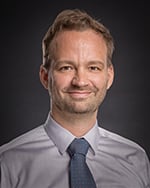
Members
Daniel Abate Daga, PhD - Associate Member
Dr. Abate-Daga's research is focused on the development of T cell-based immunotherapies for the treatment of cancer, and the translation of those preclinical findings into clinical application.
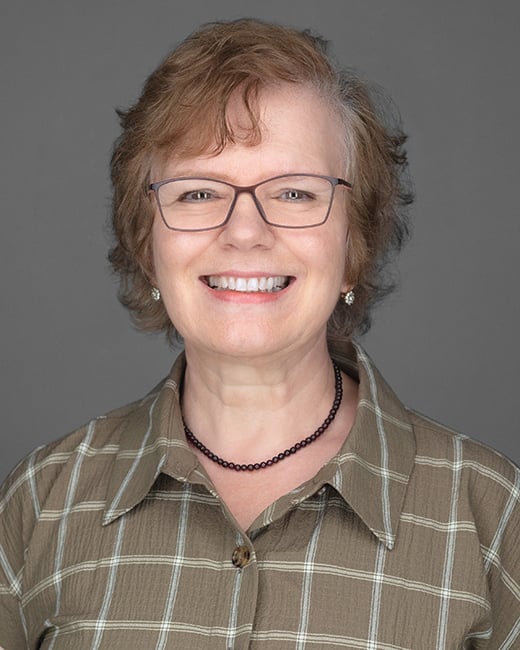
Dorina Avram, PhD - Senior Member
The Avram lab investigates transcriptional and epigenetic regulators that dictate tumor infiltrating T lymphocytes (TILs) programs. Through complex manipulations of these decision factors, the goal is to reach a state in which the stemness, residency and effector programs of TILs are maintained, while the exhaustion is blocked. Such a state will make the TILs resistant to the immunosuppressive tumor microenvironment.
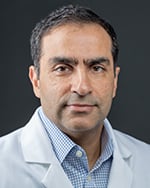 Amer A. Beg, PhD - Senior Member
Amer A. Beg, PhD - Senior Member
The Beg laboratory is interested in developing new strategies aimed at modulating the tumor microenvironment to increase tumor immunogenicity and response to therapeutics. Through both laboratory and clinical trial studies, ongoing projects aim to modulate activity of epigenetic and cytokine pathways to enhance immunological control of lung cancer. The Beg laboratory is also developing novel oncolytic virus strategies to generate potent anti-tumor T cell responses that can turn immune "cold" to "hot" tumors capable of responding to checkpoint inhibitors and other immunotherapeutics.
 Andrew S. Brohl, MD - Associate Member
Andrew S. Brohl, MD - Associate Member
Dr. Brohl's research focus is in translational genomics, applying next-generation sequencing and assay technology to advance biologic discovery, identify novel targets for therapy, and assist clinical management.
 Joel Brown, PhD - Senior Member
Joel Brown, PhD - Senior Member
As member of the Cancer Biology and Evolution Group and the Department of Integrated Mathematical Oncology, my research and collaborations are multi-disciplinary, including collaborative work on skin cancer cell culturing with Ken Tsai.
 Pei-Ling Chen, MD, PhD - Associate Member
Pei-Ling Chen, MD, PhD - Associate Member
Dr. Chen's is an assistant member of the Department of Anatomic Pathology practice. Her practice is primarily in clinical dermatopathology.
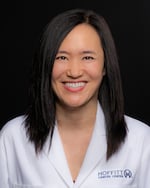 Christine Chung, MD - Senior Member
Christine Chung, MD - Senior Member
Dr. Chung's research focuses on molecular characterization of head and neck cancer and translation of these findings to develop integral biomarker-driven clinical trials.
 John L. Cleveland, PhD - Senior Member
John L. Cleveland, PhD - Senior Member
Dr. Cleveland’s research has been broadly focused on the molecular pathogenesis of cancer, where he has been a leader in interrogating the regulation and role of oncogenes and tumor suppressors in controlling cancer cell growth and survival, and in defining new targets that play essential roles in the development and maintenance of cancer.
 Anna E. Coghill, PhD, MPH - Assistant Member
Anna E. Coghill, PhD, MPH - Assistant Member
Dr. Coghill's research focus is exploring how the immune environment associated with pathogens such as Epstein-Barr virus (EBV) and human immunodeficiency virus (HIV) can play a role in both cancer prevention and response to therapy.
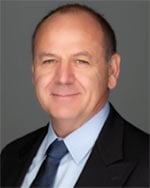 Derek Duckett, PhD - Senior Member
Derek Duckett, PhD - Senior Member
Research in the Duckett lab is focused on identifying novel anti-cancer targets , developing small molecule probes against these targets and interrogating how their altered signaling drives tumor progression, metastasis and therapy resistance.
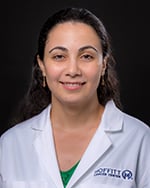 Zeynep Eroglu, MD - Associate Member
Zeynep Eroglu, MD - Associate Member
Dr. Eroglu’s research interests are translational and clinical research in targeted therapies and combination immunotherapeutics for melanoma and other skin cancers, along with development of personalized treatment strategies and biomarkers for patients with melanoma.
 Steven Eschrich, PhD - Senior Member
Steven Eschrich, PhD - Senior Member
The Eschrich Lab uses Bioinformatics and Machine Learning methods to answer translational research questions within cancer research, with a focus on Lung Cancer and Radiation Oncology. Methodological work includes reproducible research pipelines, normalization techniques and machine learning models from molecular data.
Rana Falahat, PhD
 Elsa R. Flores, PhD - Senior Member
Elsa R. Flores, PhD - Senior Member
The main focus of Dr. Flores' laboratory is to understand the overlapping and unique activities of the p53 family in human cancer using mouse models and patient-derived tumors.
 Peter A. Forsyth, MD - Senior Member
Peter A. Forsyth, MD - Senior Member
Dr. Forsyth has a strong interest in malignant, invasive glioma brain tumors. He is currently investigating several tumor-inhibiting agents in Phase I clinical trials.
 Robert A. Gatenby, MD - Senior Member
Robert A. Gatenby, MD - Senior Member
Dr. Gatenby spearheaded the formation of a new program at Moffitt titled Integrative Mathematical Oncology (IMO). The IMO brings to the cancer center a cadre of applied mathematicians to collaborate with tumor biologists and clinical oncologists.
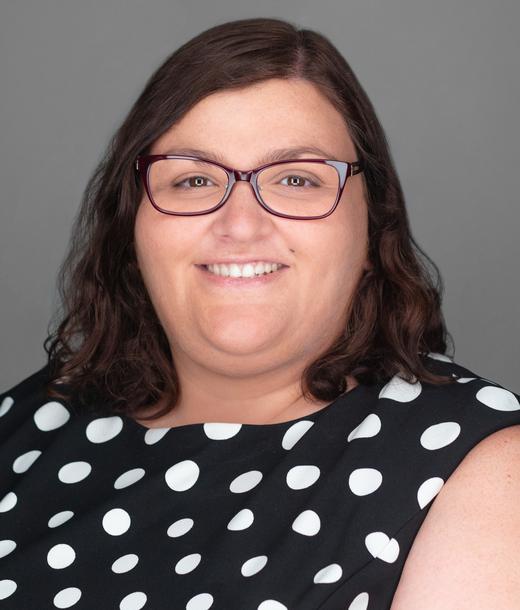
Ana Gomes, PhD - Associate Member
The Gomes Laboratory is interested in understanding how age-driven metabolic and epigenetic changes drive tumor progression and metastasis formation.
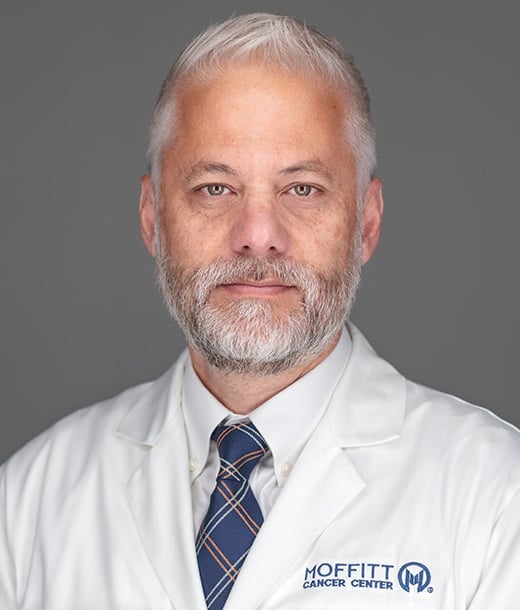
Jose Alejandro Guevara, MD, PhD - Senior Member
Dr. Guevara-Patiño’s research is focused on identifying signaling cues that can be exploited for the benefit of cancer patients receiving T cell-based immunotherapy, by deeply understanding the immune fertile conditions that are necessary to generate robust anti-tumor T cell responses. José Alejandro is specifically interested in understanding the role of RPS6 as well as the effects of tumor-related hypoxia on anti-tumor T cells. In addition, he is implementing machine learning approaches for the development of immunological predictive biomarkers that will permit the stratification of cancer patients receiving immunotherapies.
 Eric Haura, MD - Senior Member
Eric Haura, MD - Senior Member
Dr. Haura's lab uses proteomic tools to characterize kinase pathways and networks in cancer cells to discover novel therapeutic strategies using kinase inhibitors.

Alex Jaeger, PhD - Assistant Member
Dr. Jaeger’s research is focused on understanding the fundamental relationships between gene expression and protein metabolism that shape antigen presentation in the tumor microenvironment. Using inducible affinity tags, Dr. Jaeger is able to isolate tumor-specific MHC-I peptides from genetically engineered models of pancreatic and lung adenocarcinomas, using this information to profile the evolution of the immunopeptidome through tumor progression. These approaches will pave the way to new strategies for cancer immunotherapy, including cancer vaccines, tumor-targeting antibodies, and adoptive cell therapy.

Heather Jim, PhD - Senior Member
Dr. Jim's research focuses on psychosocial and behavioral aspects of cancer control. Specifically, she is interested in adjustment to diagnosis and treatment, management of symptoms and side effects, and quality of life. Because of her interest in assessment, measurement issues are a recurrent theme in her research. Dr. Jim's previous work has examined both negative outcomes of cancer diagnosis, such as distress, and positive outcomes, such as benefit-finding and meaning in life. In collaboration with colleagues at Moffitt, she is investigating cognitive functioning following treatment for breast and prostate cancer.
 Peter A. Kanetsky, PhD, MPH - Senior Member
Peter A. Kanetsky, PhD, MPH - Senior Member
New research led by Dr. Kanetsky seeks to determine whether knowledge of genetics can impact melanoma risk behaviors.

Lilit Karapetyan, MD, MS, FACP - Assistant Member
Dr. Karapetyan is studying the tumor microenvironment B-T cell interactions, improving TIL therapy outcomes with ex vivo modulation of TIL expansion.
 Florian A. Karreth, PhD - Associate Member
Florian A. Karreth, PhD - Associate Member
Dr. Karreth's lab is interested in the intersection of oncogenic signaling pathways and non-coding RNAs in the initiation, progression, and resistance of cancers driven by the MAPK pathway, with an emphasis on melanoma.
 Nikhil I. Khushalani, MD - Senior Member
Nikhil I. Khushalani, MD - Senior Member
Dr. Khushalani is interested in research on angiogenesis in melanoma and the translation of findings into clinical therapeutics.
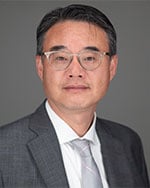 Jongphil Kim, PhD - Associate Member
Jongphil Kim, PhD - Associate Member
Dr. Kim's primary research interest involves the multiple comparisons, longitudinal data analysis, categorical data analysis and survival analysis.
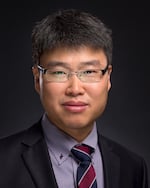 Youngchul Kim, PhD - Assistant Member
Youngchul Kim, PhD - Assistant Member
Dr. Kim is dedicated to a personalized cancer treatment by developing prediction models of responsiveness of cancer patients after anti-cancer drug therapy based on pharmacogenomics data of preclinical cancer models.
Todd C. Knepper, PharmD - Associate Member
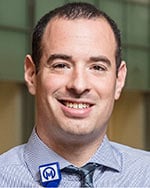 Dr. Knepper’s research focuses on the utilization of genomics to improve therapeutic strategies for the treatment of patients with cancer and advance understanding of cancer biology, with a particular interest in rare malignancies.
Dr. Knepper’s research focuses on the utilization of genomics to improve therapeutic strategies for the treatment of patients with cancer and advance understanding of cancer biology, with a particular interest in rare malignancies.
 John M. Koomen, PhD - Senior Member
John M. Koomen, PhD - Senior Member
The Koomen Lab uses mass spectrometry-based techniques to better understand cancer biology, evaluate hypotheses derived from basic science experiments in human tumors, and contribute to the development of novel strategies for patient assessment and treatment.
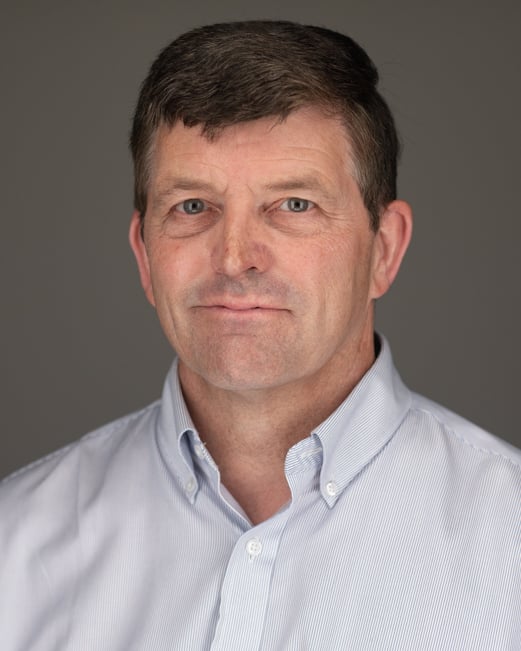
Nicholas Lawrence, PhD - Senior Member
Our laboratory's efforts are focused on the synthesis of new anticancer agents. The goal of the laboratory is to design and develop a synthetic methodology to provide small organic molecules to act as selective anticancer agents against a range of molecular targets. Our research concerns the development of new anticancer drugs using a combination of synthetic chemistry and natural product isolation; it involves a very productive collaborative program incorporating both chemistry and biology.
James K. Liu, MD
 Dr. Liu also leads a laboratory research effort focused on understanding the molecular mechanisms that drive the formation of brain tumors. In particular, the Liu Laboratory focuses on how a subset of the tumor population with tumor-initiating, or stem-like properties, contribute to the proliferation of brain tumors and their resistance to medical therapies.
Dr. Liu also leads a laboratory research effort focused on understanding the molecular mechanisms that drive the formation of brain tumors. In particular, the Liu Laboratory focuses on how a subset of the tumor population with tumor-initiating, or stem-like properties, contribute to the proliferation of brain tumors and their resistance to medical therapies.
 Vincent Luca, PhD - Senior Member
Vincent Luca, PhD - Senior Member
The Luca Lab studies the "molecular language" of cell-to-cell communication using cutting-edge approaches in structural, cellular and synthetic biology.
Moffitt Profile | Lab website
 Joseph Markowitz, MD, PhD - Associate Member
Joseph Markowitz, MD, PhD - Associate Member
Dr. Markowitz's research interest is in studying immune suppressor cells, their role in the development of melanoma, and means of inhibiting their actions.
 Jane L. Messina, MD - Senior Member
Jane L. Messina, MD - Senior Member
Dr. Messina's research interests include pathology of the sentinel node, biomarkers of prognosis in cutaneous melanoma, and etiology and treatment of Merkel cell carcinoma.
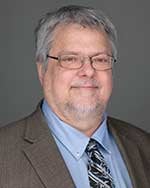 David L. Morse, PhD - Associate Member
David L. Morse, PhD - Associate Member
Dr. Morse’s research projects are focused on the identification and validation of cell-surface markers for cancer, discovery of ligands or antibodies specific for binding validated markers, and the development of targeted molecular imaging probes and nanoagents for the detection and treatment of cancer.
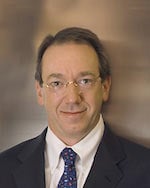 James J. Mulé, PhD - Senior Member
James J. Mulé, PhD - Senior Member
Dr. Mulé's research focuses on characterizing and validating genomic signatures of immunotherapy response, as well as designing and translating novel vaccine and adoptive T-cell transfer strategies to patients with advanced solid tumors.

Duy Nguyen, PhD - Assistant Member
Dr. Nguyen's laboratory is dedicated to investigating the biophysical properties of solid tumor microenvironments. We seek to understand the dynamic interactions among cancer cells, the immune system, and the important role of extracellular mechanics in driving tumor progression.
 Shari A. Pilon-Thomas, PhD - Senior Member
Shari A. Pilon-Thomas, PhD - Senior Member
A major goal of Dr. Pilon-Thomas' research is to investigate approaches that overcome melanoma-mediated T cell suppression.
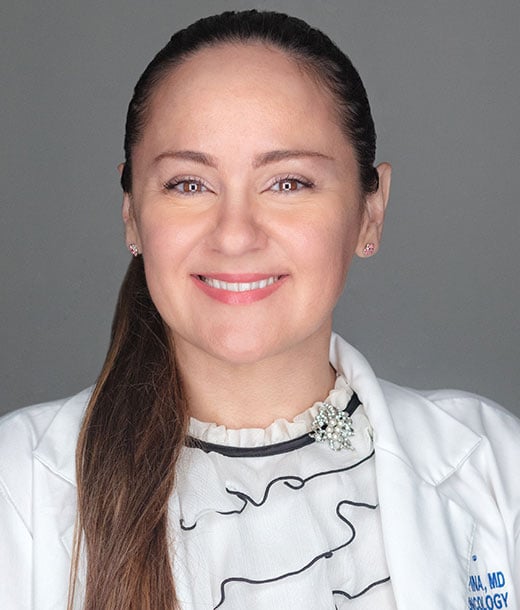
Yoly Pina, MD - Assistant Member
Dr. Pina's clinical and research interests are in leptomeningeal disease, a devastating complication from lung, breast, melanoma, GI, primary brain tumors, and many other solid cancers, and her drive is to find cures for this disease while maintaining good quality of life.
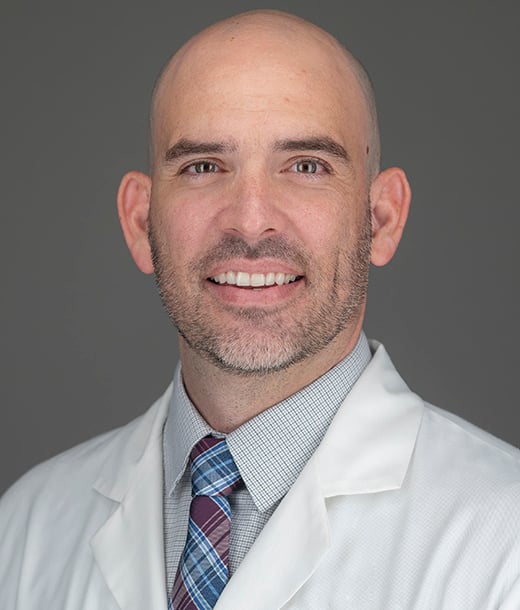
Matthew Perez, MD - Assistant Member
Dr. Perez's research interests focus on outcomes for the surgical treatment of melanoma and other cutaneous malignancies, including evaluating novel treatment strategies (intralesional, regional perfusion, and systemic therapies) for locally advanced or disseminated cutaneous malignancies.
 Sanjay Premi, PhD - Assistant Member
Sanjay Premi, PhD - Assistant Member
Dr. Premi’s team explores the pathophysiology of melanin-chemiexcitation pathway in skin cancer development, progression, and drug-resistance. One of their immediate goals is to characterize stress mediated, non-classical regulation of gene expression, protein modifications, and resistance against targeted therapy in melanoma.
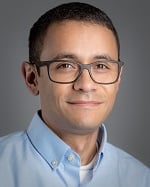 Paulo Rodriguez, PhD - Senior Member
Paulo Rodriguez, PhD - Senior Member
Dr. Rodriguez's research programs focus on the suppressive effects induced by tumor-infiltrating myeloid-derived suppressor cells (MDSC), a heterogeneous population of immature myeloid precursors that are primary mediators of tumor-induced anergy and a major obstacle for the development of successful cancer immunotherapies.
 Dana Rollison, PhD - Senior Member
Dana Rollison, PhD - Senior Member
Dr. Rollison’s primary research focus is the molecular epidemiology of human polyomavirus and papillomavirus infections in relation to cancer.
 Amod A. Sarnaik, MD - Senior Member
Amod A. Sarnaik, MD - Senior Member
Dr. Sarnaik's primary research interest involves investigation of novel immunotherapeutics in the treatment of melanoma. This includes tumor-based vaccines, immune-activating antibodies, targeted inhibition of oncogenic proteins, and autologous T cell therapy.
 Michael J. Schell, PhD - Senior Member
Michael J. Schell, PhD - Senior Member
Dr. Schell has led the development of a statistical method to analyze AQUA (Automated Quantitative Analysis)-generated tissue microarray (TMA) data. The method is a 7-step procedure which works quite well for identifying and resolving technical problems when two highly correlated variables are available.

Inna Smalley, PhD - Assistant Member
The I. Smalley Lab investigates how intra-tumoral heterogeneity facilitates drug resistance and dissemination, with a focus on single-cell analysis and metabolism.
 Vernon K. Sondak, MD - Senior Member
Vernon K. Sondak, MD - Senior Member
The translational research interest of Dr. Sondak is in allogeneic tumor vaccines for patients with intermediate-risk melanoma.
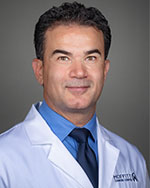 Ahmad Tarhini, MD, PhD
Ahmad Tarhini, MD, PhD
As a clinical and translational physician-scientist, a major objective of Dr Tarhini’s research has been the pursuit of studies that test novel targeted therapeutic strategies selected on the basis of a continuously deepening understanding of the molecular circuitry and immune biology of melanoma.
 Jamie K. Teer, PhD - Senior Member
Jamie K. Teer, PhD - Senior Member
Dr. Teer's research interests are focused on developing methods to analyze, interpret and visualize massively-parallel sequencing information in cancer genetics.
 Mingxiang Teng, PhD - Assistant Member
Mingxiang Teng, PhD - Assistant Member
Dr. Teng’s research focuses on developing computational methods to address data challenges in cancer genomics studies, such as data quality, data bias, pre-processing and functional annotation of high-throughput sequencing data.
 Susan Vadaparampil, PhD - Senior Member
Susan Vadaparampil, PhD - Senior Member
Dr. Vadaparampil’s research uses a combination of behavioral science, epidemiology, health services, and clinical perspectives to understand and improve dissemination and uptake of new cancer prevention and control innovations including genetic testing for hereditary cancer susceptibility and HPV vaccination.
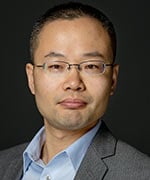 Lixin Wan, PhD - Assistant Member
Lixin Wan, PhD - Assistant Member
The Wan lab is focused on the regulation and role of Anaphase-Promoting Complexes (APC) in directing the destruction of key proteins that control transit through the cell cycle, and in shaping proteomic networks in normal versus cancer cells.
 Xuefeng Wang, PhD - Associate Member
Xuefeng Wang, PhD - Associate Member
Dr. Wang’s research interests include Biostatistics, statistical genomics, and computational biology. His group develops efficient machine learning methods, such as kernel learning and probabilistic learning, for analyzing data in genomics, drug development and personalized medicine.
 Evan Wuthrick, MD - Radiation Oncology
Evan Wuthrick, MD - Radiation Oncology
Dr. Wuthrick specializes in radiation therapy for skin cancers such as melanoma, Merkel cell carcinoma, squamous cell carcinoma, and basal cell carcinoma.
Xiaonan Xu, PhD
 Jonathan Zager, MD - Senior Member
Jonathan Zager, MD - Senior Member
Dr. Zager’s research interests are in treating cutaneous melanoma as well as non melanoma skin cancers and soft tissue sarcomas including, extremity, cutaneous and retroperitoneal sarcomas.
Donald A. Adam Melanoma and Skin Cancer Center of Excellence
